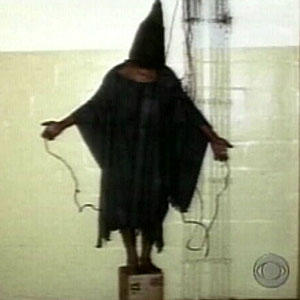Torture and the Legacy of Nuremberg

This weekend marks the 60 anniversary of the judgment in the Nuremberg War Crimes Tribunal . This is a monumental world event in the sense that it laid many precedents for international law and set the ethical norms for the treatment of people accused of the hideous practice of crimes against humanity.
Almost 60 years to the date, Congress has passed legislation that ushers in new legal and ethical standards for the treatment of people accused of engaging in war crimes, including restricting the rights of detainees and setting up norms for interrogation that might differ from those set in international law. This article from David Luban argues that the new laws demonstrate how the United States is turning its back on the legacy of Nuremberg.
Another article by Dahlia Lithwick suggests that the new legislation still does not describe what is or is not ethically appropriate in the humane treatment of detainees. These judgments seem to be left to the discretion of the President and the President is not to be completely bound by international law according to these new bills. Torture is ruled out, but there seems to be quite a bit of leeway in the various kind of "coercive" techniques that might be allowable. Does the treatment issued out in the Abu Ghraib prison in Iraq count as something that would be morally impermissible under the new rule of law?
Starting next week, in honor the Nuremberg Trials, I will be beginning a podcast with an expert on modern torture. Hopefully this interview will help us to make sense of some of the kinds of practices that are being sanctioned as essential tools in the war on terror. Stay tuned.
Labels: human rights, torture


0 Comments:
Post a Comment
Subscribe to Post Comments [Atom]
<< Home